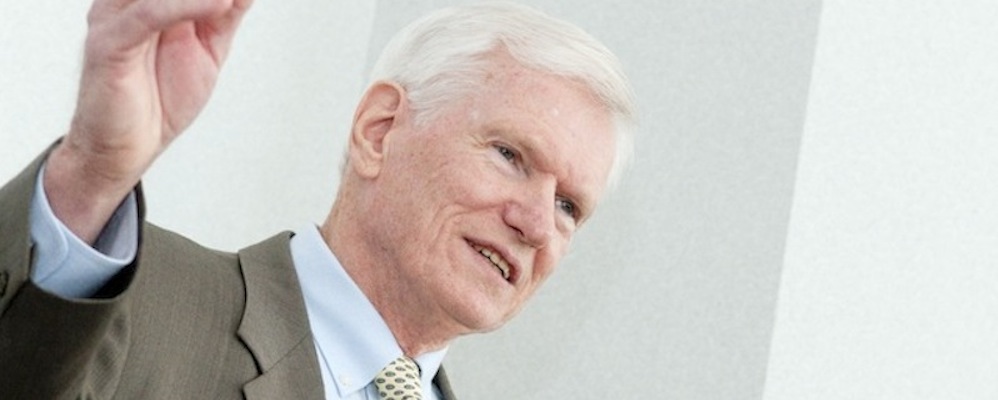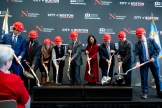How’s Obama doing so far?

In his first term, President Obama has faced an array of challenges — from high unemployment and his controversial health care bill, to foreign policy issues involving countries such as China and Egypt. Critical topics such as these were the crux of an engaging conference at Northeastern University on Feb. 10 assessing Obama’s first two years in office, and what’s in store for the road ahead.
The conference, “The Obama Presidency at Midterm: Policies, Politics and Promise,” was sponsored and organized by political science professor William Crotty, holder of the Thomas P. O’Neill Chair in Public Life, with the help of Northeastern’s Department of Political Science. The event attracted political science experts from institutions across New England who offered a rich exchange of viewpoints to a packed Raytheon Auditorium throughout the day.
“The presenters really went beyond simply what’s happening at this moment and instead put it into a much broader context,” Crotty said. He also hailed the depth of the questions from students in the audience — particularly on environmental policy affecting job creation, perceptions of race and politics, and America’s position on the revolution in Egypt.
In welcoming remarks, Mary Loeffelholz, vice provost for academic affairs, said the developments taking place in the United States and abroad underscore the university’s fundamental approach to research and learning. She pointed to Northeastern’s signature education model that promotes a global vision, real-world experience for students, and innovative, use-inspired research.
“Driven by President Aoun’s leadership, Northeastern today is a university increasingly of and for the world,” Loeffelholz said. “Our research efforts focus on addressing today’s national imperatives and tomorrow’s global challenges across the university’s three broad themes: health, security, and sustainability.”
Northeastern political science professor William Mayer moderated the conference’s morning panel, while professor Robert Gilbert presided over the afternoon session. In the morning session, panelists covered foreign policy, health care and President Obama’s environmental policies. In the afternoon, the discussion shifted to the economy, as well as voting trends among whites and blacks.
Dean Robinson, a political science professor at the University of Massachusetts Amherst, examined the president’s health-care legislation, predicting that despite its efforts, the law likely will fall short of eliminating racial and ethnic health disparities.
Later, John Berg, a political science professor at Suffolk University, tackled Obama’s record on the environment. While citing lesser accomplishments such as setting fishing limits to conserve marine resources, Berg noted that the president hasn’t made a strong enough argument to the American people regarding climate change and that major changes are needed in our energy policy.
Thomas Ferguson, a political scientist at University of Massachusetts Boston, noted the lack of serious government policy to tackle unemployment and the housing market, adding that he’s not convinced these areas will have dramatically rebounded by the 2012 election.
Despite the generally downbeat assessment, Arthur Paulson, a political science professor at Southern Connecticut State University, said Democrats would have no choice but to support Obama in 2012, because no strong challenger is emerging.





